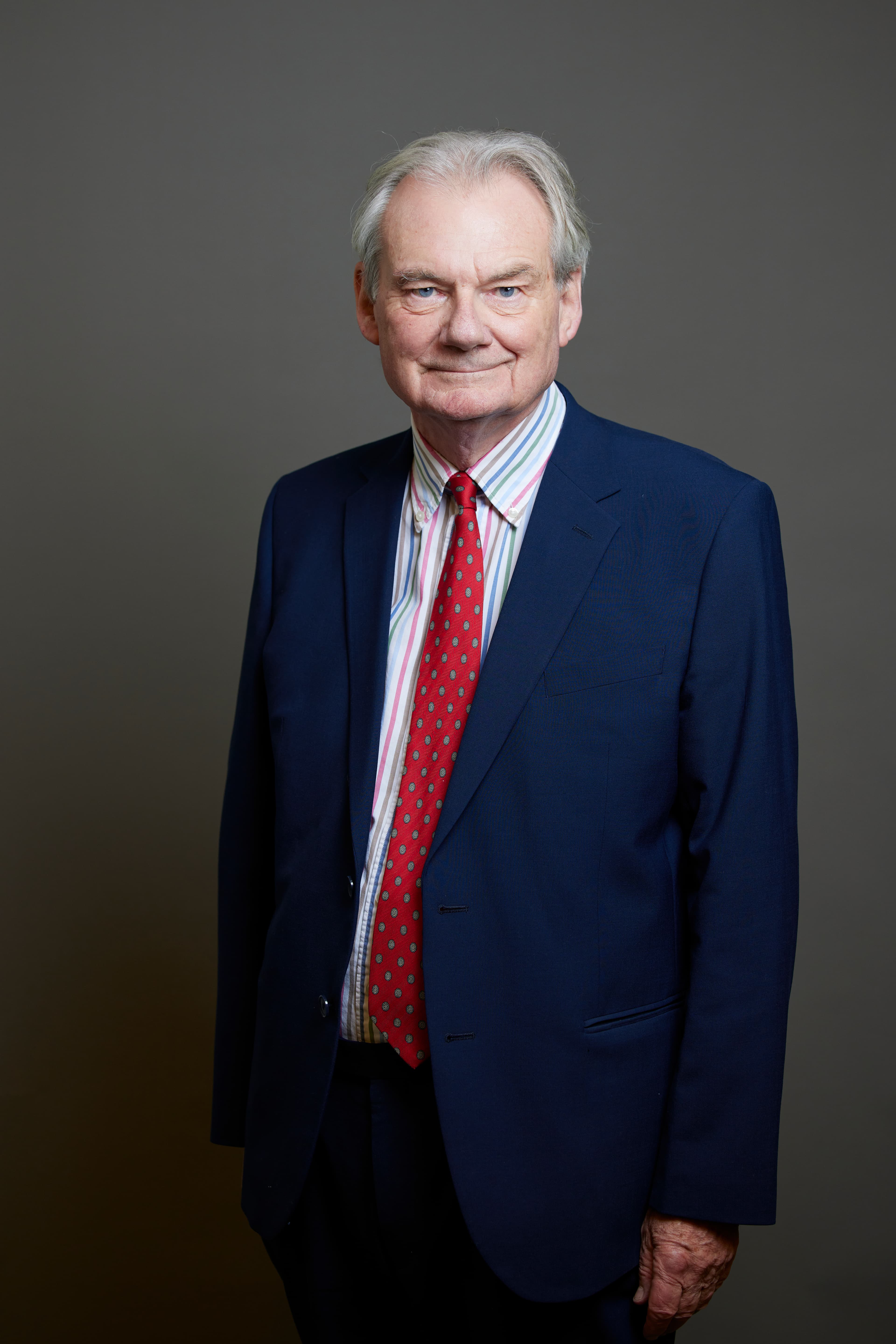This story is published in partnership with the Guardian.
A British lawmaker who is trying to derail a so-called generational ban on tobacco sales discussed the bill with a family member who is “very high up” at British American Tobacco, he told The Examination.
Lord Strathcarron, whose given name is Ian David Patrick Macpherson, proposed amendments in the spring that would gut the central provision of the bill. Rather than banning tobacco sales to anyone born after 2008, Strathcarron’s amendments would raise the legal purchase age from 18 to 21. The proposed changes mirror British American Tobacco’s own lobbying position.
Strathcarron’s relative, an in-law whose name he would not disclose, told him he considers the legislation as “unnecessary as market forces are doing what the bill intends,” Strathcarron said in an email. Strathcarron did not respond to questions about when the conversation took place.
The lawmaker has also not publicly disclosed the family connection to British American Tobacco.
The House of Lords code of conduct states that holders of public office “should not act or take decisions in order to gain financial or other material benefits for themselves, their family, or their friends. They must declare and resolve any interests and relationships.”
The Examination contacted the House of Lords Commissioners of Standards about whether this constitutes a breach and it said it could not speculate whether Stratharron was in breach in the absence of a formal investigation. In a text to the Guardian, Strathcarron said it “never occurred" to him to declare a family interest because the member concerned is “barely family.”
Strathcarron’s amendments would ensure that millions more could legally buy tobacco products in the future, compared to the provisions of the original bill, which aims to create a “smoke-free generation.” If passed, the legislation would make the U.K. the second country in the world to implement a generational ban. The bill is being fiercely resisted by tobacco companies that have threatened the U.K. government with legal action.

Tobacco groups have also hosted right-wing members of Parliament in an attempt to water down proposals. Earlier this year, The Examination revealed that Lord Vaizey, a Conservative peer, proposed delaying the U.K.’s proposed ban on heated tobacco weeks after a leading cigarette company paid for him to visit its research facility in Switzerland.
More than 70,000 people die every year in the U.K. due to smoking-related illnesses, according to the most recent government estimates.
In the email exchange with The Examination, Strathcarron called the original version of the bill “unworkable” and said his opposition to the generational ban is to propose “something that will actually work in practice rather than in theory."
He questioned whether his discussion with his in-law about the bill would constitute lobbying but admitted that peers sometimes lean on lobbyists due to a lack of resources.
“I am sensitive to this subject because members of the House of Lords do not have any support staff and we have to rely on lobbyists and pressure groups for research and sometimes for drafting,” he said in an email.
A British American Tobacco spokesperson said the company was “unaware of any engagement between a BAT employee and Lord Strathcarron” and did not respond to a question asking which employee was related to the British peer.
“While we support the UK Government’s smoke-free ambition, we believe the generational smoking ban would increase the illicit market and incentive criminals,” said the spokesperson.
Subscribe to our newsletter
Global health reporting, straight to your inbox
Following the initial email exchange, The Examination and the Guardian approached Strathcarron on Oct. 9 with questions about whether his discussions with the in-law, and his decision not to disclose the relationship, amounted to a conflict of interest. That weekend, the lawmaker requested that the House of Lords withdraw his name from the amendments. His name was officially withdrawn on Oct. 13, the next working day, but the amendments remained in place under the name of another British peer.
Strathcarron told The Guardian that he had asked to have his name withdrawn weeks before he was approached for comment, but said his request had not been carried out. A House of Lords spokesman said there is no record of Strathcarron asking to have his name removed from the amendment prior to the weekend before Monday Oct. 13.
Strathcarron then added his name back on to the amendments on Oct. 20. The House of Lords is scheduled to consider whether to approve them, including the removal of the generational smoking ban, on Monday. The bill will then be presented for a vote in the House of Lords chamber.
During a House of Lords debate on the Tobacco and Vapes Bill earlier this year, Strathcarron declared a potential conflict of interest — but not his family tie to a major tobacco firm.
“My Lords, I declare an interest, in that a minority investor in one of my companies also manufactures vapes, although my concerns for this Bill have nothing to do with vapes but relate to its treatment of cigars and pipes, and the fact that a generational ban is, in practice, unenforceable and therefore unworkable,” he told the chamber.
In the same speech, Strathcarron described cigars as “harmless,” a characterization contradicted by extensive academic research showing mortality risk from regular cigar smoking can equal or exceed that of cigarettes.
Strathcarron also told The Examination in an email that he met a tobacco industry representative at this year’s British Grand Prix, which took place in July after he submitted his amendment. He said he works “closely” with advocacy groups Action on World Health and Free Speech Union, and privacy campaigners Big Brother Watch. “They notify me of forthcoming events, which I often attend,” he said.
Action on World Health, co-founded by Reform UK leader Nigel Farage, campaigns to “reform” or “replace” the World Health Organization, which it accuses of “interfering in your lives and personal freedoms,” including “the food you eat, the alcohol and sodas you drink, the treatments you receive, as well as the smoking cessation products you use.” The campaign group is also staffed by former nicotine industry consultants, according to a previous investigation from The Guardian. The group does not disclose its funding sources.
Its co-founder, David Roach, runs a firm providing secretariat services to the Global Institute on Novel Nicotine, which advocates for nicotine pouches and other products
Documents obtained by the Guardian recently revealed that Roach also helped a little-known “climate finance solutions venture” called Bia Advisory to recruit former U.K. Prime Minister Boris Johnson to persuade the United Arab Emirates to invest a billion dollars into the venture. A parliamentary watchdog found that Boris Johnson’s actions breached rules designed to stop the abuse of contacts made in public office.
An Action on World Health spokesperson said it had not spoken to Strathcarron about the bill and received no funding from the vaping or pharmaceutical industries, with which it had no connections.
The Maldives is the only other country currently in the process of introducing a generational smoking ban. Several towns in Massachusetts, in the United States, have also enacted bans. Similar proposals in Malaysia and New Zealand have been scrapped, with tobacco control advocates blaming industry lobbying.

